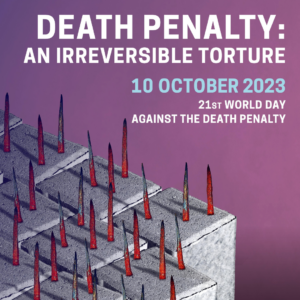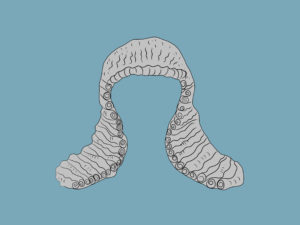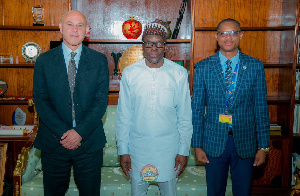
Privy Council quashes murder convictions in Jamaica, highlighting the importance of fair trial rights
- News
- 14 Mar 2024
PRESS RELEASE
Today, 14 March 2024, the Judicial Committee of the Privy Council (Privy Council) unanimously allowed an appeal from Jamaica concerning the murder convictions of four appellants, Shawn Campbell, Adidja Palmer, Kahira Jones, and Andre St John. All, including Adidja Palmer, a well-known dancehall artist in Jamaica (known professionally as ‘Vybz Kartel’), were convicted of a murder that occurred in 2011.
Following a hearing across two days on 14-15 February 2024, the Privy Council today ruled that the trial was grossly unfair as one of the jurors had attempted to bribe the jury and the judge had failed to discharge the jury – the only viable option in the circumstances. The Privy Council noted that there was “…no evidence” connecting any of the convicted men to the activities of this juror.
The Privy Council stated in today’s judgment: “In the Board’s view, allowing [the juror] to continue to serve on the jury is fatal to the safety of the convictions which followed. This was an infringement of the defendants’ fundamental right to a fair hearing by an independent and impartial court in accordance with section 16 of Chapter III of the Jamaican Constitution.”
Evidence obtained by the legal team showed that, following the conviction of Campbell, Palmer, Jones and St John, a juror from the trial was found guilty of attempting to pervert the course of justice, following their attempts to bribe jurors. The juror was found guilty on 24 March 2015. Documents were disclosed to the court by the Crown evidencing this fact the day before the Privy Council hearing. This disclosure was provided by the prosecution almost nine years after the event and the State’s successful prosecution of the juror.
The prosecution argued at the Privy Council that it was the prosecution, and not the defendants who had been prejudiced by the bribery attempt. Dismissing this argument the Board stated that the “…fact that the prosecution might be prepared to waive an irregularity does not absolve the court from its responsibility to ensure a fair trial.”
The Privy Council have remitted the case back to the Court of Appeal of Jamaica, to decide whether another trial for Palmer, Campbell, Jones, and St John can be fairly held. If the Court of Appeal decide that a fair trial is no longer possible, due to the passage of time and other factors, the Appellants will be freed from prison.
Commenting on the judgment Saul Lehrfreund, Co-Executive Director of The Death Penalty Project said:
The right to a fair trial is fundamental and must always be respected. In this case, the attempted bribery of the jurors should have left the judge with no option other than to discharge the jury. The judge’s failure to do so in this case rendered the trial unfair. Palmer, Campbell, Jones, and St John have spent over 12 years in prison after a trial that was unsafe. In every case, the right to a fair trial is essential and is fundamental to the integrity of the entire legal system.
Background to the Case
In 2014, Shawn Campbell, Adidja Palmer, Kahira Jones, and Andre St John were charged with the murder of Clive Williams, in an incident that took place on 16 August 2011. Another man, Shane Williams, was also charged with murder but was acquitted.
After a trial lasting 64 days, all four men, including Adidja Palmer, were convicted of murder. Each were sentenced to life imprisonment; Campbell and Jones were sentenced to a minimum of 25 years; St John was sentenced to a minimum of 30 years and Palmer was sentenced to a minimum of 35 years. All four men have always maintained their innocence.
In 2017, all men appealed their convictions and sentences to the Jamaican Court of Appeal. In 2020, the Court of Appeal delivered judgment, dismissing the appeal against conviction but allowing the appeals against sentence, reducing their sentences to account for prior time served on remand. In 2022, the Court of Appeal granted permission to the Appellants to appeal their convictions to the London-based Judicial Committee of the Privy Council, the final court of appeal for Jamaica. The Jamaican Court of Appeal certified nine points of law for the Privy Council to determine.
The grounds of appeal which where advanced in the Privy Council related to the way evidence was gathered, whether evidence was inadmissible, and irregularities with the jury at trial – which brought into question whether they had a fair trial and whether their convictions could be deemed unsafe.
Finding that the appellants’ trial was unfair due to attempted bribes to the jury rendering the convictions unsafe, the Privy Council did not find it necessary to deal with the remainder of the grounds of appeal. However, the Privy Council has left the door open to the appellants arguing that the prosecution gathered evidence in this case in breach of their constitutional rights, during the upcoming Court of Appeal proceedings and any potential retrial.
Ends
Notes to Editors
The Privy Council judgment
See the judgment here for Shawn Campbell and 3 others v The King
The Legal Team
Campbell, Palmer, Jones, and St John were represented by an international team of attorneys in Jamacia and barristers from the United Kingdom, including Matrix Chambers, Doughty Street Chambers, and Malins Chambers. All counsel were instructed by The Death Penalty Project at Simons Muirhead Burton LLP.
Shawn Campbell was represented by Julian Malins KC, Bert Samuels, Thalia Maragh, Linda Hudson, Bianca Samuels, and Isat Buchanan.
Adidja Palmer was represented by David Hislop KC, Isat Buchanan, and Alessandra LaBeach.
Kahira Jones and Andre St John were represented by Hugh Southey KC, John Clarke, James Robottom and Anirudh Mathur.
The Death Penalty Project
The Death Penalty Project (DPP) is a legal action NGO based at, and supported by, London legal firm, Simons Muirhead Burton LLP. The organisation has special consultative status before the United Nations Economic and Social Council. DPP provides free representation to people facing the death penalty worldwide. It uses the law to protect prisoners facing execution and promote fair criminal justice systems, where the rights of all people are respected.



















